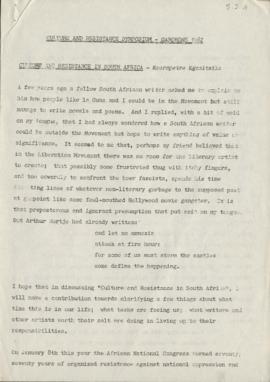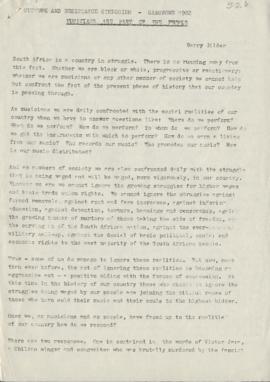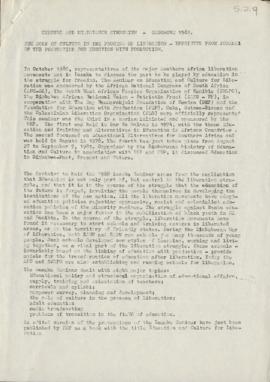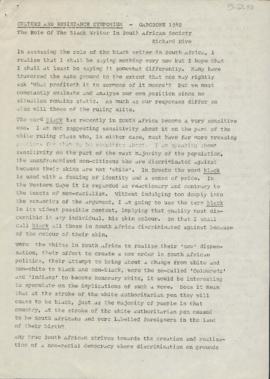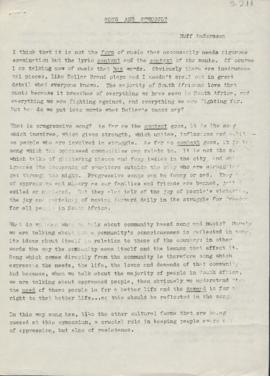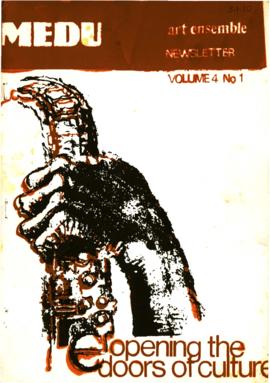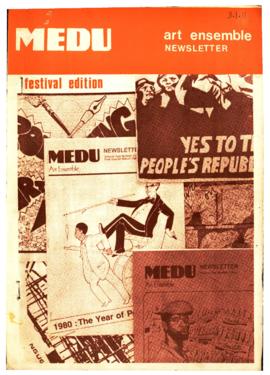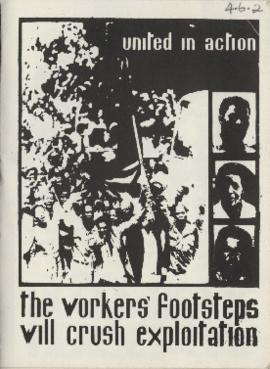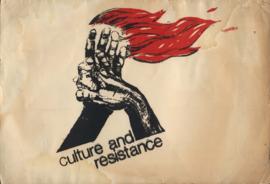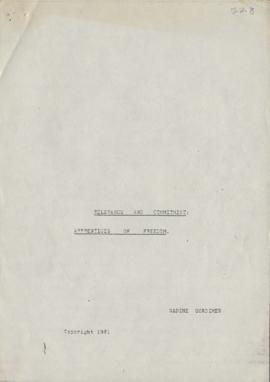Culture and Resistance in South Africa
- ZA MEDU MEDU-5-5.2-5.2.4
- Subsérie
- 1982
In this paper, Keorapetse Kgositsile argues that art and culture play a role in the struggle against Apartheid. Kgositsile, a poet and acclaimed writer, regards literature as being a key site of struggle. He suggests that literature "must serve the interests of the people in their fight against a culture which insists that they should be robbed". Kgositsile reflects on the contributions of literature to the struggle which he believes are both artistic and "functional" to the needs of the people.
Sem título



